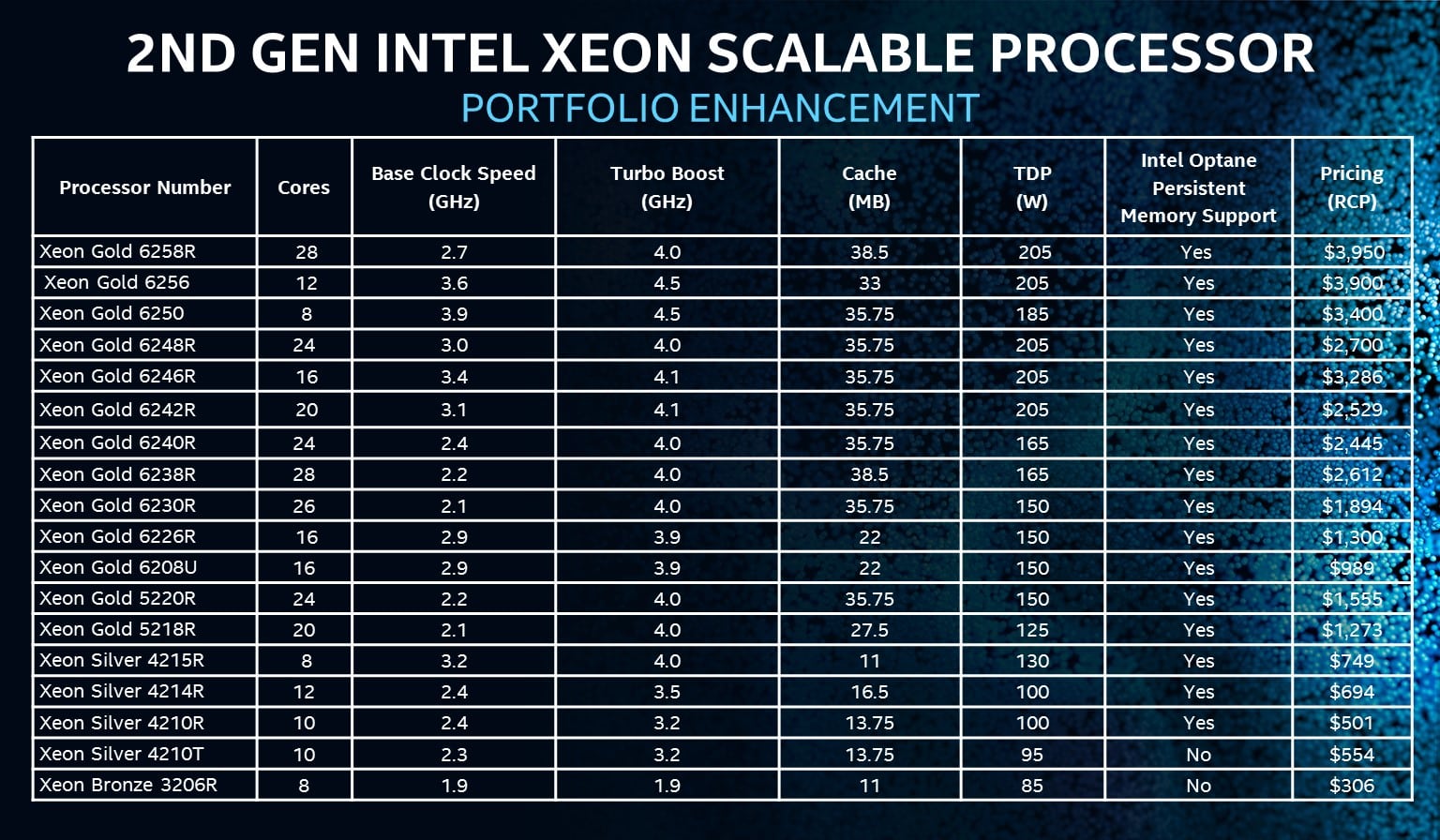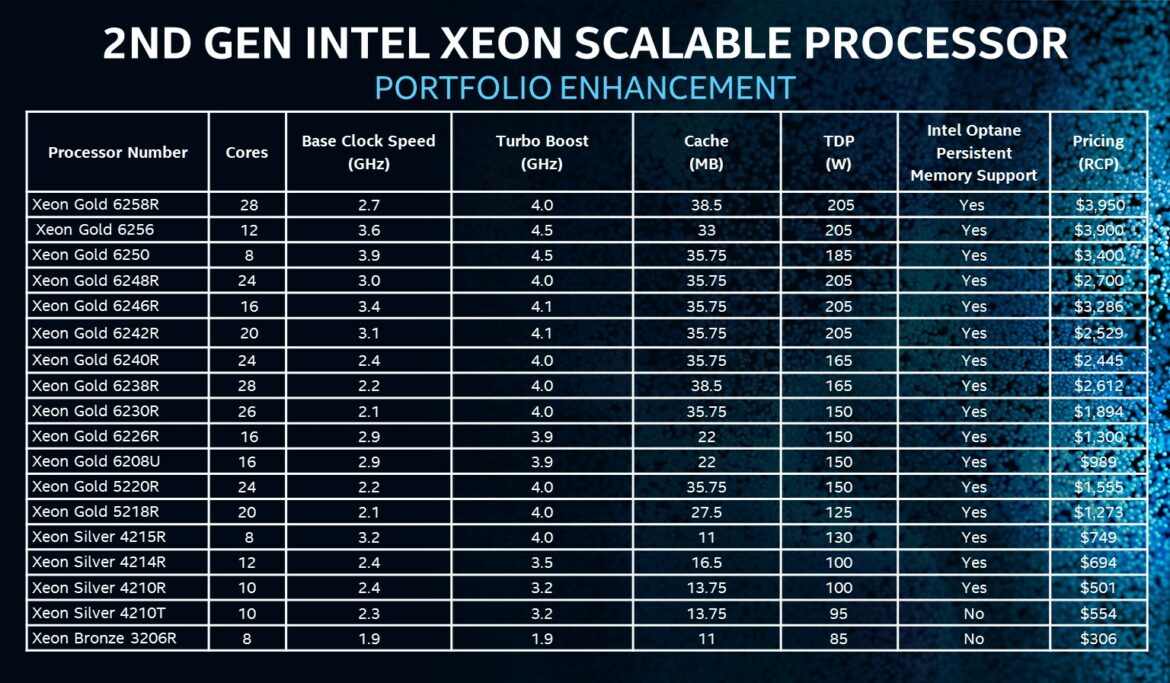Today, Intel announced a refresh of the second generation Intel Xeon Scalable CPUs, with aggressive pricing as a core change across the portfolio. The new processors are all about competitive performance, making them more attractive against the changing compute marketplace. The CPUs can be used for a wide variety of use cases but is also part of the larger 5G announcement Intel made today as well.
Today, Intel announced a refresh of the second generation Intel Xeon Scalable CPUs, with aggressive pricing as a core change across the portfolio. The new processors are all about competitive performance, making them more attractive against the changing compute marketplace. The CPUs can be used for a wide variety of use cases but is also part of the larger 5G announcement Intel made today as well.

There are a few things in the air surrounded CPUs at the moment. Intel released their latest version of Intel Xeon Scalable in April of 2019. The second generation came with more performance as well as new capabilities such as the ability to leverage Optane DC PMEM. Shortly thereafter, AMD fired a shot with its release of the second generation of AMD EPYC CPUs with even better performance than the newly released Xeon Scalables, and benefits of their own such as the ability to leverage PCIe 4.0. It seemed that the two giants would duke it out to the benefit of everyone. Then VMware introduced a wrinkle by switching its per socket pricing to per 32-core pricing. This in turn had AMD come up with a small release that can bypass the VMware “tax.” Now it is Intel’s turn for a smaller release.
Today’s announcement doesn’t seem to be in relation to the VMware “tax,” though, none of the new CPUs have over 32 cores. The new processors announced here are more aimed at performance, with Intel quoting speeds on average of 1.36-times higher performance and 1.42-times better performance-per-dollar compared with the 1st Gen Intel Xeon Gold processors. Intel has added cores to some processors, a larger cache, and higher frequencies. The company has broken down the new CPUs with new designations of an “R,” “T” or “U” suffix that are designed for dual- and single-socket mainstream and entry-level server systems.
Intel released two new gold processors with what they are calling the industry’s highest server processor frequency, the Intel Xeon Gold 6256 and 6250. These 12 and 8 core CPUs, respectively, are said to deliver a base and turbo frequency up to 3.9 GHz and 4.5 GHz. High clock speeds like these are good for use cases such as financial trading, simulation and modeling, high-performance computing, and databases.
Use cases for the new CPUs
- Industry-leading frequencies for high-performance usages: New Intel Xeon Gold 6200 processors deliver up to 4.5 GHz processor frequency with Intel Turbo Boost Technology and up to 33% more processor cache, offering customers breakthrough performance for frequency-fueled workloads.
- Enhanced performance for mainstream usages: New Intel Xeon Gold 6200R and 5200R processors deliver built-in value through a combination of higher base and Intel Turbo Boost Technology frequencies, in addition to increased processor cache.
- Increased value and capability for entry-level, edge, networking and IoT usages: New Intel Xeon Gold 6200U, Silver 4200R, Sliver 4210T and Bronze 3200R processors deliver increased value for single-socket entry-level servers, as well as edge, networking and internet of things (IoT) usages.
Something else to point out here, is price. One large advantage to AMD over Intel, aside from performance, is price. AMD tend to run much lower in general. With this update, Intel is lower prices significantly for the same specs (the 6285R has the same specs as the 8280 but comes in under $4,000 versus $10,500). Of course, the R means dual-socket systems so they aren’t exactly identical, but it is definitely a step in the direction of giving customers more options when choosing CPUs.
Engage with StorageReview
Newsletter | YouTube | Podcast iTunes/Spotify | Instagram | Twitter | Facebook | RSS Feed

